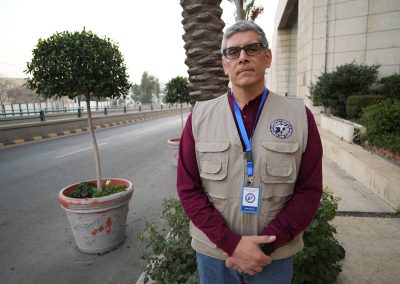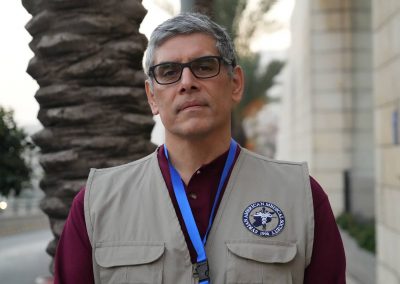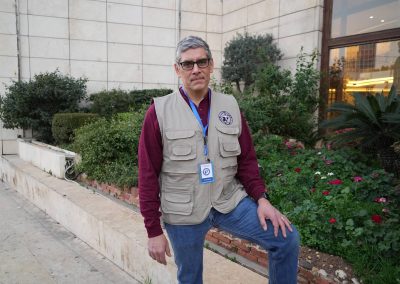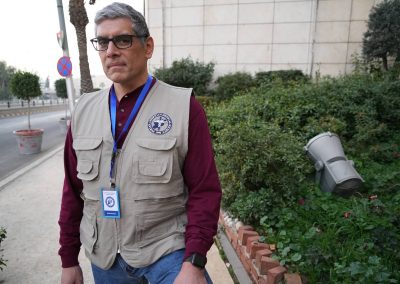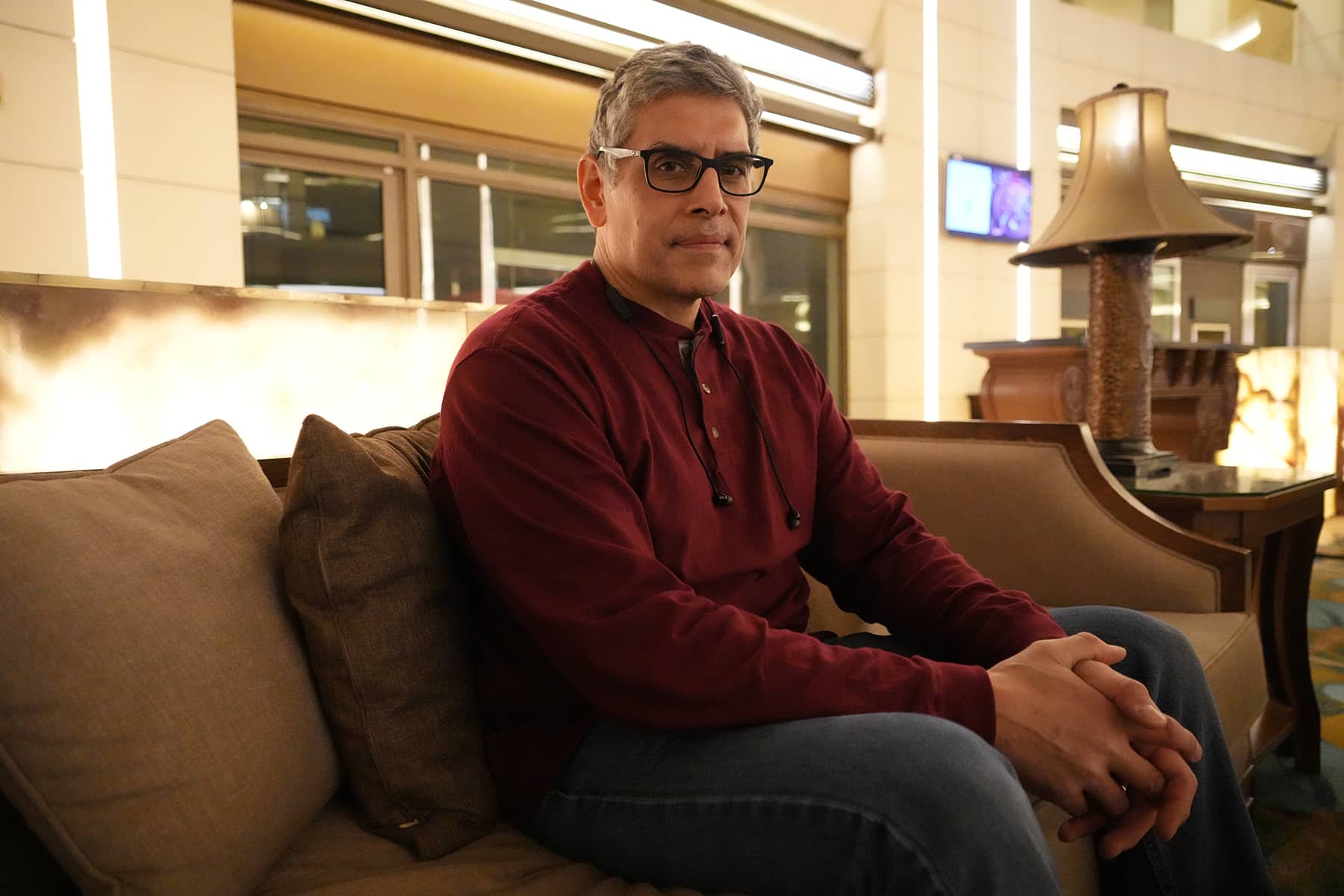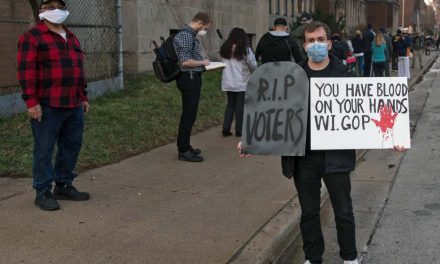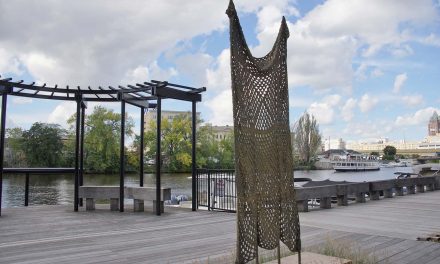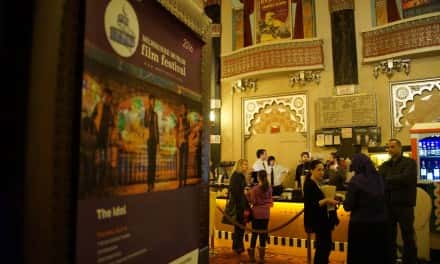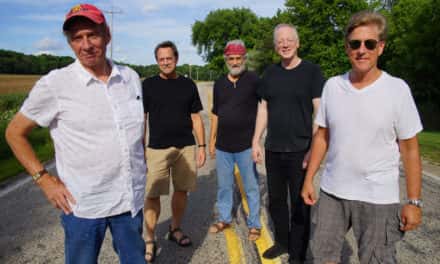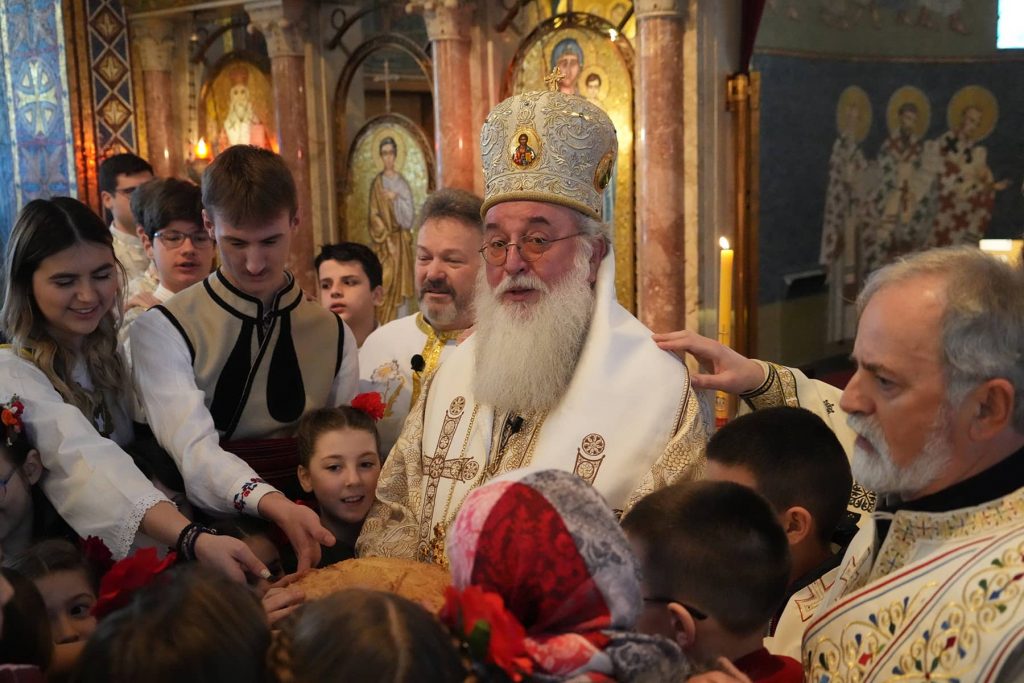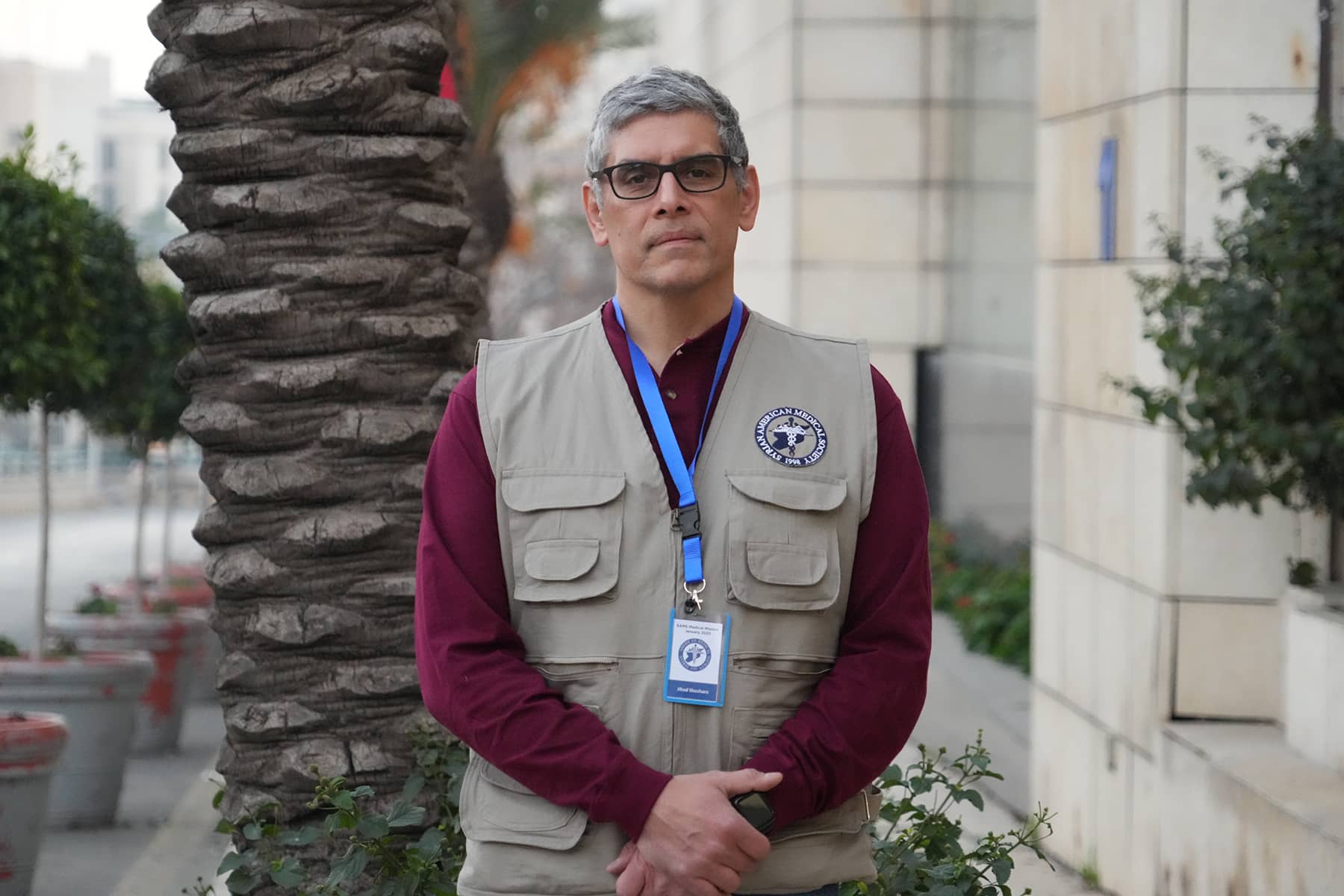
Medical Mission to Jordan: After more than a decade of Civil War in Syria, and continuing conflicts like the unprovoked Russian invasion of Ukraine that further displaced millions of civilians, understanding the longterm conditions that war refugees face remains relevant. But as public attention fades, such topics do not capture headlines today, even as the impact continues to be felt here in Milwaukee. mkeind.com/jordanmedicalmission
Medical professionals spend many years learning, growing, and accomplishing work in their field. For those who were not born in the United States, or are from immigrant families, the path to medical school is often an adventure story in itself. In preparing introductions of the Syrian American Medical Society (SAMS) volunteers who were interviewed for the “Medical Mission to Jordan” series, the depth of what each individual has achieved in their career literally requires a separate article to detail. Being chief of a department, or professor, or research leader, or board chair, are all in addition to the root vocation of their dedicated medical care of adults and pediatric patients. In this context, regardless of position or occupation, all the volunteers of the SAMS Medical Mission arrived in Amman with one purpose, to offer crisis relief to refugees affected by the Syrian Civil War. Exploration of medical backgrounds was explained within each interview to the extent necessary by the participant. While each layer of their medical career and position of responsibility were essential to their mission work in Jordan, those detailed descriptions were actually a distraction in being able to share their story. Who they were “in person” was why they were interviewed. Not who they were “on paper,” which was still immensely impressive but simply too much to unpack in this context.
Q&A with Dr. Jihad I. Shoshara, MD
Milwaukee Independent: How were you inspired to follow a career in the medical field?
Jihad Shoshara: I came to medicine late in my life. I had originally planned to go into biology research, but discovered in college that I did not love it. I also wanted a career where I interacted directly with people instead of just working in a lab all day. In college, I suffered a season-ending football injury my sophomore year that necessitated two surgeries. The surgeon was our team physician, and the fact that I made a full recovery and played the next season gave me an impression about the impact a doctor can have.
Milwaukee Independent: How did you become involved with the Syrian American Medical Society (SAMS)?
Jihad Shoshara: I originally became involved with SAMS back in 2007. At that time, SAMS was not the relief agency it was today. It was mostly a means to travel to Syria, combining vacation time with CME (continuing medical education) trips. Within a year after the beginning of the war, SAMS had begun efforts to help the civilians being killed. In 2015 they started to do missions to Jordan. I joined either the first or second one. That mission was transformative in that it gave me an outlet for the despair and paralysis I felt. I kept doing them yearly until 2018. Work and the pandemic kept me from joining them again until now.
Milwaukee Independent: How has this trip been different from previous SAMS medical missions for you?
Jihad Shoshara: It has been four and a half years since my last mission. So between that time, there has been the pandemic, there has been all the changes people have in their own lives, and my own career. What I see from the standpoint of these missions is that SAMS has become more efficient, more effective at organizing them and at delivering vital medical services. They are doing things now that I would have loved to have implemented back when I was running them. And it is all being done with a lot of experience and forethought being put in mind. I think that is helpful, first and foremost to the patients, as well as to the broader mission of SAMS to be able to help Syrians and all people in need. So I think there have been positive changes in recent years. By and large, this mission has been a positive experience and I am glad to see that it has moved forward this way.
Milwaukee Independent: Looking back at your early medical missions to help Syrian refugees, what was your biggest frustration?
Jihad Shoshara: It was definitely the lack of an ability to refer people to specialists and to be able to help people enough. I am a primary care physician, so I am the entry point for a lot of medical problems. I will see people and if it turns out they have some kind of lung condition like asthma, I then have to send them off to a specialist so they can treat it. Here in Jordan we are kind of parachuting in for a week. For the surgeons, they are dealing with known issues because patients have been screened. So they come in and affect change right away. In previous missions, we would only discover medical needs of patients when we first examined them. We did not have a continuing presence or footprint here, so we could only learn about conditions when we arrived. A lot of people fell through the cracks, and we could not help everybody who needed it. On a good day we could only help a small minority. At least now with our admissions process, there is a good way to keep track of patients when we find someone with a specific medical problem. We are able to follow up with them later – even if it is not during this mission but for a future mission. That feels much better to me as a doctor, that the patients with needs are getting their care met. In the past, I would find a patient with a medical problem and there was nothing I could do. Back in the States, it was no problem to get them to a specialist. But here, because they are refugees and they do not have medical access, or they do not have funds to pay for medical care, there was no system to step in and help. Now SAMS can absorb that cost. We are still a drop in the bucket, so to speak, but the drop is better than nothing and that makes me feel good.
Milwaukee Independent: What were you surprised to learn about yourself after your first SAMS mission?
Jihad Shoshara: What I discovered was that doing the mission gave me a way to expand my advocacy. Within a week of returning from my first mission, the president of SAMS at the time requested that I join him for a meeting with a U.S. Senator to lobby him. Our meeting led the Senator to publicly advocate for the protection of Syrians, a position that he had previously been resistant to take. Since then, I have lobbied and testified at both the state and federal levels for the rights of Syrian refugees, and to expand Medicaid coverage for children in need.
Milwaukee Independent: Can you talk about your Syrian identity and what motivates you to volunteer to help refugees?
Jihad Shoshara: I lived in Syria for a year, and was very close to my family there, but the connection was not the same as somebody who grew up in Syria their whole life. And because only one of my parents was Syrian, I did not grow up in a community surrounded by other Syrians. Basically, my circle of friends and my family came from my father’s side, and they were also Syrians who had married non-Syrian Americans. So my relationship to Syria and Syrian culture was different. But I still felt powerless, particularly when my own relatives fled the war. I felt like I could not do anything, and I knew that situation was getting worse. It was terrible to be so helpless. The medical missions gave me a way to kind of deal with that, and it gave me a way to create a positive force that I could apply. So while I am quite sad over the situation that has happened with the Syrian people, I do have to accept this as kind of what it is. And to the extent that I have guilt, it is always going to be there. Because I am living in the United States, I am a physician, I am highly educated, I have thankfully a great life. But I have been able to connect it in a special way. I am just one guy, but I am going to do everything I can do to be positive and make a positive push. And maybe that helps make it easier for me to cope with the situation, because I did not grow up there. I think for the Syrians who did grow up there, it would be much harder if I were in that position – to try and come to terms with the war and its impact. It is so much more for them to process. For all the smiles that you see here, because these volunteers are very happy to do this work, the pain they have is much deeper.
Milwaukee Independent: What was the hardest experience of your working with Syrian refugees?
Jihad Shoshara: The hardest experience of working with Syrian refugees was listening to their stories, particularly at first. When I started doing these missions, SAMS was still treating Syrian civilians gravely injured by bombing. Their stories of what happened to them and their families were almost too much to bear. Over time, the violence has passed further away – but it has never left any Syrian family, because almost every refugee who was not directly injured has some relative who was hurt or killed. The second hardest has been knowing that no matter how much I do or write, my ability to change the ultimate course of the refugees’ lives is practically zero. I work with a good deal of cognitive dissonance with respect to both.
Milwaukee Independent: What do you see as the future for Syrian refugees, will the current status quo ever change so they can go home?
Jihad Shoshara: I think in the short term, the medium term, and who knows – perhaps the long term, if we talk in terms of the rest of my life – the prognosis on the mass level is very dim. When the whole situation started, I kind of felt there were different ways the situation could go. Syria could end up like Lebanon in the 1980s. The forces that are at play in Syria are so diverse, and short of major tectonic shifts there is no push to see massive changes that will help the Syrian people. I think the chance that the Syrians had to do it on their own was not supported. And now their ability to do stuff like that is very limited. I do not see any major unifying thing that will bring a solution to this soon, particularly because the world has moved on. It is now preoccupied with other things like the war in Ukraine. That has a knock off effect in Syria, because of the players involved in both arenas. So I have hope – just because I tried to be an optimistic nice guy. But logically speaking, I do not see any pathway to change things. Nothing is evident, and it may stay that way for the rest of my life.
Milwaukee Independent: What would you like the public to know about conditions in refugee camps?
Jihad Shoshara: After I had been in the refugee camps for two days, my primary thought was that this was how you create extremism – you crowd thousands of people into a temporary location with no ability to leave or advance themselves, and let them sit while the next generation grows up with little hope. I would want people to know that keeping people penned up in refugee camps is not just against our principles and values, but more concretely works against our national security interests by creating a generation of people whose lack of opportunity will leave them susceptible to extremism.
Milwaukee Independent: Where do you still find hope?
Jihad Shoshara: It is hard to be hopeful. Where I find it is in the small successes – the child whose infection I treat, whom I help to breathe when they cannot, and whose mother I calm by explaining their child’s condition. These positive inflections are at least reminding refugees that they have not been forgotten, and giving them the ability to move forward for another day towards what I dearly wish will be a better future – even if that seems far off now.
This editorial feature is one of a multi-part explanatory series about the “Dr. Majdi Omar” SAMS Jordan January 2023 Medical Mission. The journalism project embedded a Milwaukee Independent photojournalist, from January 21 to 26, 2023, with a group of Syrian American doctors from Milwaukee and Chicago. It documented their trip to Jordan and the medical work done at clinic locations like Za’atari Camp, Salt, Jerash, En Albasha and Marej in Amman, and Basma in Ma’adab. Medical Mission to Jordan: A journey from Milwaukee to help Syrian Refugees, shares the personal voices, stories, images, and conditions around those involved in the Syrian American Medical Society (SAMS) mission to Jordan. It also explores the refugee experience, and the intimate connections of local medical professionals, who put their work on hold and left their families behind for a couple weeks to provide healing to others who have endured a generation of trauma.
Series: Medical Mission to Jordan
- Medical Mission to Jordan: Traveling from Milwaukee to document the conditions of displaced Syrians
- Refugees in need: How the Syrian American Medical Society is able to provide vital medical services
- Waleed Najeeb: A spiritual duty to bring specialized relief to those suffering from a decade of war
- Za’atari Refugee Camp: Syrians struggle with a decade of life in the bubble of a temporary shelter
- Jihad Shoshara: How medical advocacy empowers Syrians living with guilt and trauma from a distance
- Deadliest in a decade: Untold numbers remain buried under rubble in Syria after devastating earthquake
- Medical Mission to Jordan: A visual diary from a week with Syrian refugees and SAMS volunteers
- Hazar Jaber: Advocating for oral health so poverty does not make sugar into a poison for children
- Bassel Atassi: Holding onto a family identity after Syria went from a home country to a ghost country
- Medical Mission to Jordan: The faces of Syrian refugees and their health struggles after years of war
- Abrar Qureshi: Finding a "Street of Happiness" among the faded ruins of hope in Za’atari
- Abdullah Chahin: Building a collective purpose to provide medical care as a Syrian in exile
- Zein Barakat: A spirit of volunteerism that nurtures an abundance of compassion, love, and humility
- Hima Humeda: A Syrian college student’s story from childhood heart surgeries to caring for war refugees
- A clarity of vision: Giving displaced Syrian children the ability to see a world full of possibilities
The 7.8 magnitude earthquake struck parts of Syria and Türkiye on February 7. It came a week after the SAMS Medical Mission ended, and while Milwaukee Independent finished the final production of this editorial series. The public is encouraged to make donations to the Syrian American Medical Society in support of their vital crisis relief work.
Lее Mаtz
Lее Mаtz

